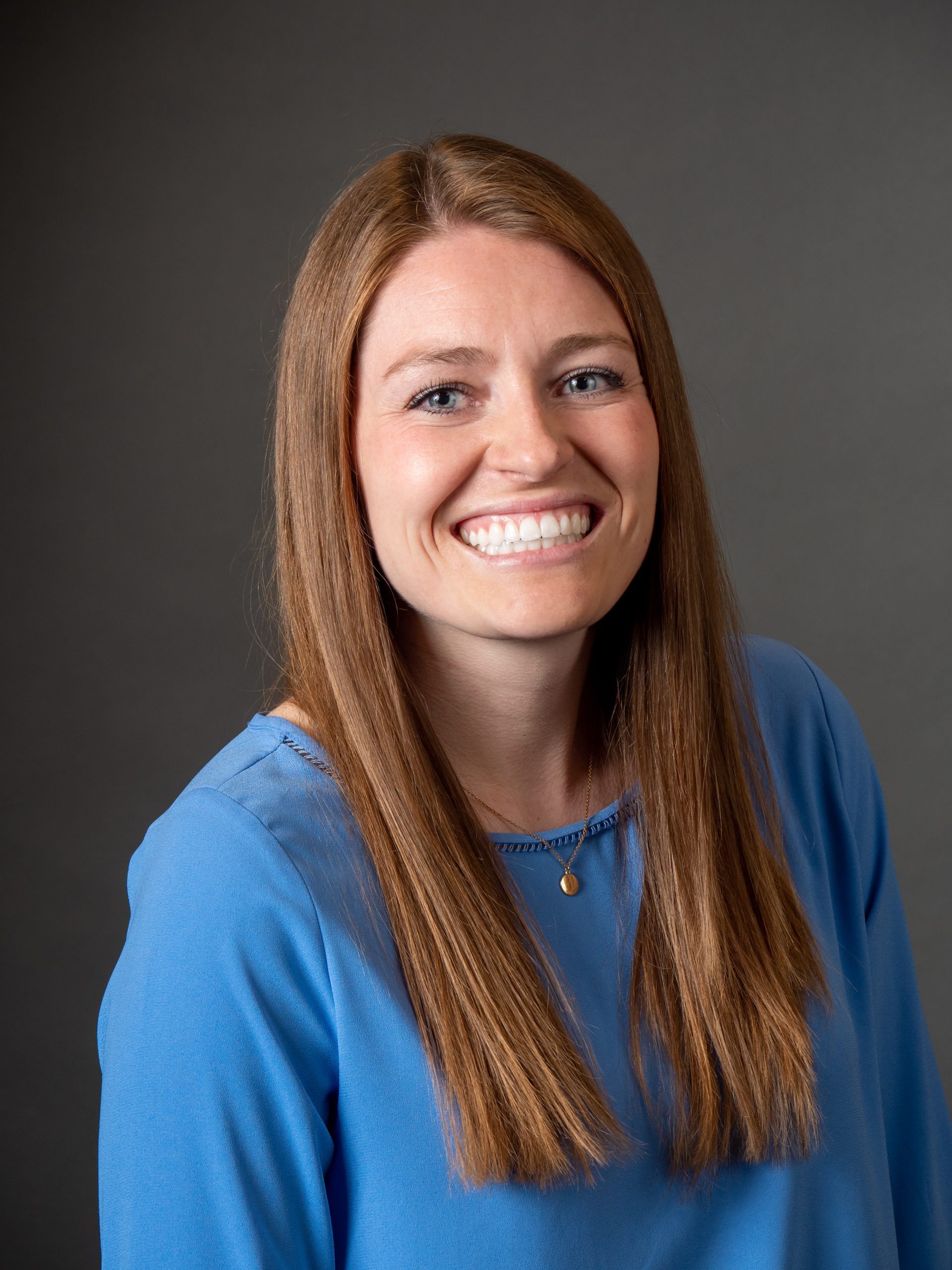Mackenzie Cissne joined the Thompson Center in June 2021 as a graduate research assistant working with Dr. Kerri Nowell. Mackenzie is also working with Dr. Connie Brooks and Dr. Michael Morhland on the psychology team as a practicum student. Her research areas of interest include cognitive and functional outcomes of individuals with developmental disorders, specifically outcomes in executive functioning, including inhibitory control, working memory, flexibility, and metacognition.
Tell us about your educational background.
I received my Bachelor of Arts in psychology from the University of Nebraska in 2018, my Master of Arts in clinical psychology from the University of Missouri in 2022, and I am pursuing my Ph.D. in clinical psychology from the University of Missouri.
What brought you to the Thompson Center?
During my first year of graduate school, I worked with Dr. Christina McCrae, a research collaborator of the Thompson Center, on a clinical trial investigating a cognitive behavioral therapy for insomnia in children with autism. Through this collaboration, I came to know and love the Thompson Center research team, our values, and our patients, and I happily accepted an invitation to join the research core more officially to work with Dr. Kerri Nowell.
How did you first get involved with autism research?
During my undergraduate and post-baccalaureate career, I was involved with research studying cognitive outcomes and neural underpinnings of individuals with traumatic brain injury. I knew I wanted to continue pursuing research in cognitive outcomes, especially in executive functioning, but I became interested in exploring these outcomes in children with autism. I then joined the clinical psychology doctoral program at Mizzou to pursue this research.
What’s your favorite thing about working in this field?
First, I love our patients and families! Beyond that, I have a passion for diagnostic and neuropsychological assessment in pediatric populations, as early diagnosis can lead to early intervention and support for our patients.
What study have you been most excited to be involved in?
I have been involved in several studies at the Thompson Center investigating whether technology can be used as a tool to help clinicians in diagnosing the presence and severity of autism spectrum disorder. These studies have given me the unique opportunity to join the clinical team during autism diagnostic appointments, which has helped grow my skills in psychological assessment, case conceptualization, and diagnostic decision-making. One of these studies was particularly exciting because we collaborated with pediatric healthcare clinics in Columbia to conduct our research during well-child visits.
What are your plans for after your time as a trainee?
Following my time as a graduate trainee, I plan to complete a pre-doctoral internship in clinical neuropsychology, followed by a postdoctoral fellowship in clinical neuropsychology, and eventually practice as a licensed clinical neuropsychologist.
How do you think your time at the Thompson Center will influence the direction of your career?
The Thompson Center has been one of if not the most valuable experience I’ve had in my graduate training. A few approaches I hope to incorporate in my future career are interdisciplinary collaboration, family-centered care, and an emphasis on training and supervision.


